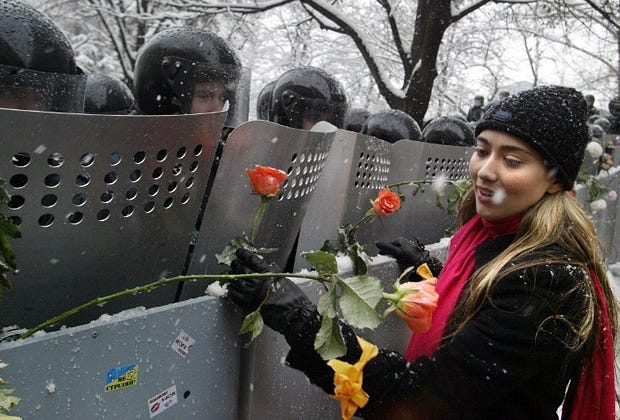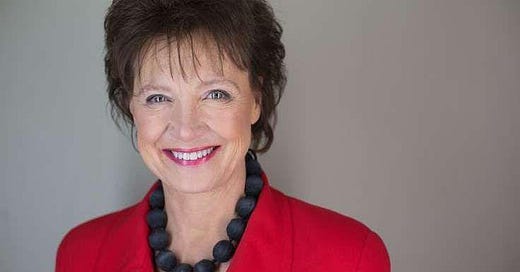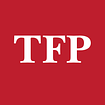The second of two parts following a conversation with Substack’s Diane Francis by Michael Judge about her start in journalism, her love and respect for Ukraine, and why a Russian defeat is inevitable.
By Michael Judge
Last week, in part one of my conversation with Diane Francis—the U.S.-born Canadian journalist, entrepreneur, professor, and author of 10 books—I wrote of her incomparable skill at “uncovering the intersection of power, money, and corruption.” And how her Substack newsletter is one of the best sources available on Russia’s bloody assault on Ukraine and how Vladimir Putin has been exporting his ruthless oligarchical model for decades. Below, in part two of that conversation, Francis explains how corruption under Putin-puppet Viktor Yanukovych weakened Ukraine’s military before Russia’s 2014 invasion of Eastern Ukraine and illegal annexation of Crimea. And how Ukraine’s 2014 Revolution of Dignity and the 2019 democratic election of Volodymyr Zelensky was seen by Putin and his gang of thugs, cronies, and oligarchs as a declaration of war on the kleptocracy that now runs Russia and its satellites. The good news is, as Francis says below, Europe now sees Putin as an existential threat and is more willing than ever to come to Ukraine’s aid. Meanwhile, the price Russia is paying is enormous, and eventually will become “untenable” for Putin and his oligarchs. “One thing is certain,” Francis says, “The Ukrainians won’t give up.”
MJ: In your many travels to Ukraine, you’ve seen firsthand how Ukrainian culture is separate, including its language, from Russian culture.
DF: Absolutely.
And the Ukrainians’ pride in that, and the history of subjugation from Russia. And now Putin says, “Look, they’ve always been a part of Russia. This is all a fantasy. Europe is trying to encroach on our land. Ukraine does not have its own culture.” What do you say to that?
It’s complete rubbish. The Ukrainians have what the Russians don’t have, and that is a civil society born out of their own history of being oppressed. It was either the Germans invading them or the Russians. They were part of the Soviet Union, true. But they very much retained their own identity. They have different churches. The Orthodox Church of Ukraine is different from the Russian Orthodox Church. The Ukrainians are agrarian people, so they have a great work ethic. They’re very resourceful, and they’re risk takers, because you have to be to be a farmer. And they’re community-oriented. They collaborate. They look for consensus. It’s also an egalitarian and feminist country. In marriage vows, for instance, it’s “to love and honor” not “to love, honor, and obey.”
Ukrainians have also been hugely influenced by and intermarried with Eastern Poland. And a lot of Polish words are in the Ukrainian language and vice versa. So, they are ethnically slightly different, religiously different, their values are different. And I think because of the big bad Russians, they have an intact, united, cohesive civil society. So when the first revolution began in the winter of 2004, the Orange Revolution—and I was there—you saw two million people freezing in the streets at night holding candles to fend off the communists and the Russians, who had rigged the 2004 election and put Viktor Yanukovych, Putin’s puppet, in power. And they convinced, with that prolonged protest, their Supreme Court to overturn that election. And a new election was held and Viktor Yushchenko won.

They did it again in 2014 when Yanukovych—who was elected in 2010, thanks to Trump campaign manager Paul Manafort’s grooming—wanted to take them away from Europe and join the CIS [Commonwealth of Independent States] and not join the European Union. I’m talking two million people. This is spontaneous. Nobody forced them. They all knew what to do and they all collaborated. They were there for months. It was really something to see. I wrote about this in my piece on Russia after the killing of Alexei Navalny, where there were only a few thousand who turned out for Navalny’s funeral. Why? Russia has no civil society because they’re all in silos. They’re terrified. They’re damaged.
The other thing that wasn’t known is Ukraine—even with Russia having clawed back 16% of it. It’s the largest country in Europe, geographically. It’s the richest country in Europe, in terms of natural resources. It could make Europe energy self-sufficient. It has so much natural gas and oil. But the Russians always prohibited them or impeded them through the oligarch network from developing their fossil fuels, so they could sell theirs via pipelines that ran through Ukraine.
The other thing is the intellectual talent. Ukraine was the Silicon Valley of the Soviet Union. The Ukrainians’ aerospace, weaponry, science, medicine, and technology was the basis for Soviet scientific successes. They put cosmonaut Yuri Gagarin into space. They created the missiles for rockets. They created all of that. They were brainy. The Russians did not. So you can see why they’ve been incredibly—brilliantly, really—innovative with drones and so on and in the way they’ve conducted this war. But you can also see why Putin didn’t want to lose them.
You can also see why the greatest lesson learned in all this is never give up a nuclear arsenal.
That’s the other thing. You know what? I was in the Rada [Ukrainian Parliament] with my lawyer friend the night they were being forced by President Clinton to give up the arsenal. And that parliamentary session went on until four in the morning with people screaming “They’ll invade us!” and “We’re defenseless!” and “How can we be so stupid?” All of which was right. But Clinton imposed it on them, and he said, “We’ll help you.” And I think it was a $160 million gift he gave them. Kazakhstan and Belarus had something similar. And that nuclear arsenal was kept with Yeltsin and now with Putin. So the whole thing was a stupid mess.
And there was an implicit understanding that if they were invaded, we would help them.
Oh, they signed the Budapest Memorandum for all three of those countries. And what happened, it made me crazy. The first invasion in 2014, I said, “So, where’s the cavalry? Britain and the U.S., where are they?” And then, of course, in 2022, they did it again.
So Putin called our bluff in 2014 when he invaded Eastern Ukraine and annexed Crimea and little was done. And that gave him carte blanche, really, to do whatever he wanted. But long before that U.S. leaders were soft on Putin. There was the famous George W. Bush statement that Putin was “trustworthy” and that he got “a sense of his soul.” Do you remember that?
Yes. And his father, the first President Bush, made a speech in 1991 known as the “Chicken Kiev” speech, named after the national dish, basically saying to Ukraine, “Hey guys, just get along with them. They’re not going to hurt you. Why do you want to be independent? It’s bugging them.” It was shocking. I think most Ukrainians felt they were still OK because they’re fierce fighters. But then, years later, the now-disgraced President Yanukovych [found guilty of treason by a Ukrainian court in 2019 and currently in exile in Russia] sold much of their armed forces equipment for personal gain. And in 2014, when the Russians first invaded Eastern Ukraine, they thought they could go all the way to the Dnieper River because there were only 6,000 combat-ready ground troops in Ukraine’s military. Now, there’s a million. Just 6,000 ground troops! Under the Soviet Union, the Ukrainian armed forces were massive—something like 400,000. And many of the big brass in the Soviet army were Ukrainians, and a lot of Ukrainians had been in Afghanistan for the Soviet forces and so on. They know what they’re doing, obviously. So I kind of adopted the country and it adopted me.
You’ve said there’s a strong feminist culture in Ukraine, and that in their marriage vows, they don’t say “obey,” which I think is great.
Very strong women there, very strong.
And now we’re seeing that in their fighting forces, with so many women taking up arms and joining the fight against Russia. In August 2022, I had the honor of interviewing Victoria Amelina, a brilliant Ukrainian novelist, poet, and essayist. She wrote children’s books as well. She was traveling in Egypt when Russia invaded in February 2022. She immediately went back and dropped her kid off in Poland. She had an 11-year-old boy at the time, and started documenting Russian war crimes. She was killed by a Russian missile attack on civilians last summer, along with 12 others, including four children.
Horrible. I have lots of Ukrainian friends, and I’ve lost three of them. One good thing about the Soviet system is that it left behind in Ukraine and the other republics an egalitarian school system. The women were educated. And everybody was educated in hard sciences and hard math. Along with my journalism, I became involved in the tech industry in Ukraine. I spent a lot of time in Silicon Valley. I taught at Singularity University and all that, and I’m an investor. But I started to do software development with Ukrainians about four or five years before the war. And I could not believe all the women who were astrophysicists, computer scientists, you name it. I mean, they really are talented. That has made a huge difference in the war.
It’s interesting you say that, because Victoria had a degree in computer science and had been very successful in the IT sector before devoting herself entirely to her writing.
The IT sector in Ukraine, for outsourced IT software development, was the largest in the world.
Yes. In some ways, she was like you. She was very entrepreneurial and a writer and an essayist. But she also talked about how under the Soviet system they may have educated them in science and technology, but they also told them they didn’t really have a culture and played up Russian culture.
Russify, they called it. Russify them.
Yes, Russify them. Ugly word. You’ve written about how before and after the Orange Revolution, Putin was amassing and consolidating power through oligarchs within Ukraine. But when President Zelensky was elected in 2019 that signaled that Putin’s plan was failing, and Zelensky’s new government would crack down on Putin’s cronies and oligarchs. Is that how you see it?
Yes, 100%. Zelensky became president in the first truly free, unrigged election in Ukrainian history in 2019.
And that necessitated Putin’s full-scale invasion, because all his other means [of subjugating Ukraine] were vanishing.
Well, there was another big problem. And I watched the acceptance speech by Zelensky on the stage with the confetti coming down. I mean, it was wild. I watched it remotely. The thing that people didn’t understand about him—and I’ve met him, I know him—is that he was a hugely successful businessman. He was an entrepreneurial mogul. He had a TV series, movies. He speaks perfect Russian. So the name Volodymyr Zelensky was as recognizable as Vladimir Putin throughout the Russian world. Every Russian family has tapes of his movies. So here you’ve got this really likable, famous brand name, and at the same time, he’s going to take on corruption and not talk carefully about it. And when he turned to the camera that night, looked right into the camera and gave his acceptance speech, he was not a comedian; he was a mogul. And he said, “And to you people in the rest of the former Soviet Union, look at what we have done tonight. Anything is possible.” And I think that, for Putin, was a declaration of war.
Two months into the war, I interviewed the military historian and former adviser to U.S. military commanders, Carter Malkasian. The piece was titled “Will Ukraine Become Another Syria?” Because, as we saw in Syria, you can bomb the hell out of a place for a decade, and all of a sudden the West isn’t interested anymore. I mean, Russia seems to be in this for the long run, no matter what it takes, betting Ukraine’s allies will fall by the wayside.
Ukrainians can’t give up. They won’t. They’d rather die. That’s a tough enemy, especially when they’re much smarter than you. That’s my hope. And I think that the money will come out of Europe. I think Europe is good and scared now, and should be. And let’s not forget, Europe’s economy is about the size of the United States’ economy. Europe is enormously wealthy with lots of educated people, and now they have the motivation. They’re just going to have to get their act together.
When my 87-year-old mother recently asked, “How is this going to end?” I said, trying to sound confident, “Well, can you imagine in Kyiv, if there’s an occupation, every single person on the street will be a threat to the occupiers.” Like you’ve said in the past, there will be no peace for Russian forces occupying the country.
That’s right. In January 2022, just before the Russian invasion, when everybody was second guessing, I wrote a piece quoting the Ukrainian general who was recently relieved of his duties as commander of the armed forces, Valerii Zaluzhnyi. And the headline was, “Mr. Putin: Every Window Will Shoot.” So you better know what you’re getting into. And he had no clue. And the price they’re paying is enormous. He’ll never admit it. He doesn’t care. But at some point, it becomes untenable for him and his oligarchs. One thing is certain: The Ukrainians won’t give up.
Let’s hope we don’t give up on them.
Exactly.
The First Person with Michael Judge is a reader-supported publication. To support TFP and access the archives consider becoming a paid subscriber for as little as $5.83 a month.





An excellent article, thank you Diane.
Ukrainians only foe aside from Putin is a completely incompetent dysfunctional USA congress. Very very disappointed and deeply disturbing. They are a ship of fools at best.